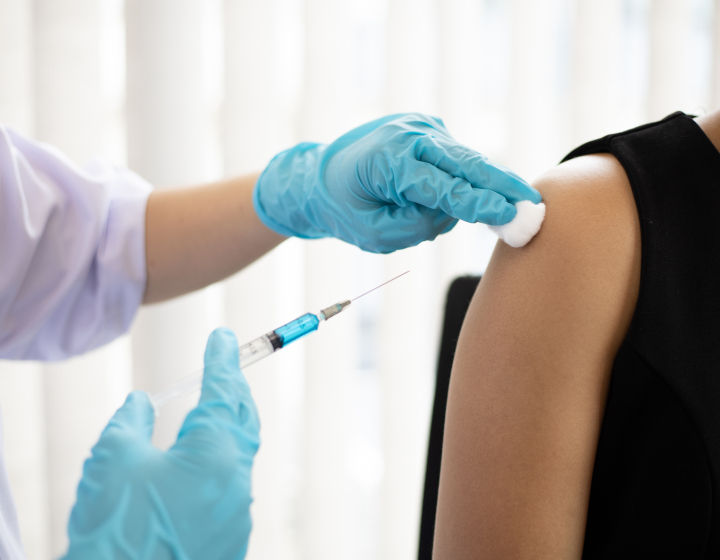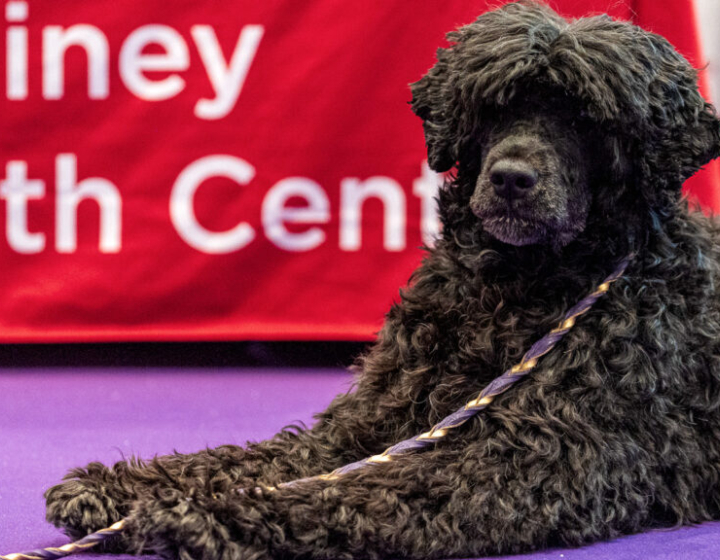CVM joins university “to do the greatest good” for animals, humans and the planet
Cornell launched its “To Do the Greatest Good” campaign Oct. 21, kicking off a five-year endeavor that looks to raise $5 billion by 2026.
“For the last 155 years, Cornell has pursued its mission of teaching, research and engagement for the benefit not only of our students, but also of our community, our society and the world,” Cornell University President Martha Pollack said in her announcement of the campaign. “The campaign will make the Cornell Promise a reality for every student, enable Cornell to lead the world on critical issues like sustainability, social and economic equity, human creativity, human and animal health, and technology and society. It will enable Cornell to fulfill and embody our mission – To Do the Greatest Good.”
The Cornell University College of Veterinary Medicine (CVM) joins this fundraising effort, with a goal of raising $125 million over the campaign period.
“We look forward to joining the university in its goals,” says Lorin D. Warnick, D.V.M., Ph.D. ’94, the Austin O. Hooey Dean of Veterinary Medicine. “Our programs in veterinary medicine, public health and biomedical research are critical to meet the challenges society faces. This campaign is about extending the reach and impact of these efforts and preparing our graduates to make a positive difference in the world.”
CVM will focus its philanthropic goals on key strategic priorities: Scholarships and student support; veterinary business education; biomedical research; clinical care and training; and One Health. Diversity, equity and inclusion efforts will be woven throughout each of these goals.
“Each of these areas are central to the college’s mission and vision,” says Matt Braun, assistant dean of alumni affairs and development. “They define who we are and also outline who we will be as Cornell looks to the future. We are excited to work with our community, alumni, donors and friends to make meaningful progress in all our goals.”
Scholarships and student support
U.S. veterinary students often face significant debt after graduation, which can limit opportunity and diversity in the profession. The college aims to improve affordability with a commitment to increasing financial aid and expanding socio-economic diversity, while developing programs to support student success once admitted. For example, scholarships such as the Julie R. Butler, D.V.M. ’83, Memorial Scholarship, focus on supporting students from historically underrepresented groups.
“Cornell as a whole, and the College of Veterinary Medicine specifically, has made tremendous progress, but more work remains to achieve the level of socio-economic diversity to which we aspire, and to further reduce the debt burden students carry with them into their careers after Cornell,” says Braun. “One way to drive immediate and meaningful change is through philanthropy, and, in particular, by providing support for students that helps them overcome obstacles to receiving the best education in veterinary medicine. Scholarship support paves the way to professional success.”
Veterinary business and entrepreneurship
The veterinary profession is undergoing rapid changes, demanding new abilities from veterinary graduates. To meet demand and embrace opportunity, the college founded the Center for Veterinary Business and Entrepreneurship (CVBE), which provides training for students in veterinary business.
Alumni are energized about the new direction the college has taken. “To have had the CVBE as a resource would have been a game changer for me,” says Carole Richards, D.V.M. ’07. “I think it’s going to equip more Cornell veterinary grads with the ability to not just survive in this profession, but truly thrive.”
As the campaign moves forward, CVM will be doubling down on its efforts to infuse the profession with business and entrepreneurial education and skills.
Research
Scientific discovery underpins the college’s educational programs, clinical care and public outreach. CVM scientists work at the forefront of clinical innovation, infectious disease, immunology, genomics, wildlife conservation, reproductive biology and public health. Whether focusing on human health, improving veterinary treatments or the intersection of animal and human disease, college researchers are contributing to the advancement and application of scientific knowledge.
"The College of Veterinary Medicine is a truly innovative institution, set within a university that inspires radical collaboration amongst faculty and researchers to solve our world’s most critical health challenges,” says Dr. Robert Weiss, associate dean for research and graduate education. “Donations to support basic scientific research means you are opening countless doorways of possibilities instead of opening just one or two.”
Clinical care and training
Founded in the days when veterinarians were most needed to keep livestock healthy and working, CVM’s training and care has evolved alongside society’s changing relationships with animals. Today, more and more families have pets and seek ever-more sophisticated veterinary care. Animal-source foods continue to be important for many food systems. As always, CVM is working to train veterinarians to meet these demands whether through the professional education program or through post-graduate education.
“Armed with state-of-the-art equipment and facilities, our dedicated students, clinicians and staff ensure that every patient gets the world-class care they deserve,” says Dr. Meg Thompson, associate dean of hospital operations and director of the Cornell University Hospital for Animals.
One Health
CVM has made One Health-based training and research a major priority, incorporating public health courses into the D.V.M. curriculum and growing the Master of Public Health degree program.
“Now more than ever, we know that the health of people depends on the health of animals and the environment,” says Dr. Alexander Travis, director of public health. “At CVM we are equipping ourselves to learn from, anticipate and prevent future disasters like the COVID pandemic. And, by focusing on sustainability, equity and community engagement, we’re working toward a healthier planet for everyone.”
Annual Giving
Aside from the specific priority areas the college focuses on, the CVM Annual Fund is also a crucial focal point for philanthropy. This fund provides support to all aspects of the mission of the College — from student education, to faculty recruitment, to hospital care, providing the college with the greatest flexibility to address opportunities as they arise. “I believe in Cornell as an institution. I believe in its leadership, even as that leadership evolves over the years,” says Cynthia Suprenant, a longtime donor to the college’s Annual Fund. “That’s why I prefer not to specify how Cornell uses my gifts. From my perspective, the leadership knows the needs and the resources required to meet those needs. It may be that money is needed for a specific research effort, for a new program, or it may be needed to keep the lights on. These are all valid things, and I’d like the leadership I trust to have the most flexibility they can have.”
The College of Veterinary Medicine is poised to play a leading role in the campaign for Cornell University. Affordability, engagement and helping to solve the world’s most pressing challenges are all areas where its faculty, students and alumni are already striving “to do the greatest good.”
There are many ways to join the effort to strengthen and advance the college’s goals. For information on how your contribution can help make a difference, contact Director of Development, Alison Smith, or make a gift today online.
Written by Lauren Cahoon Roberts





